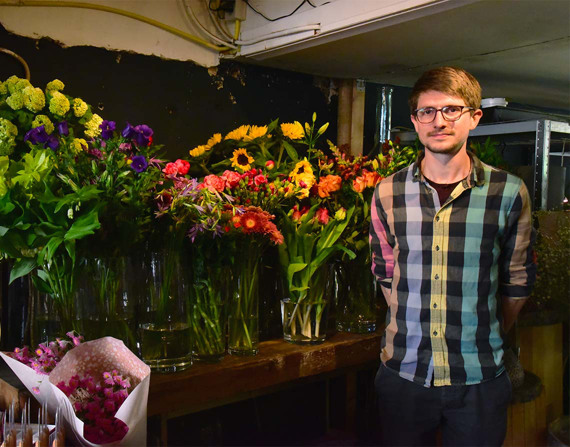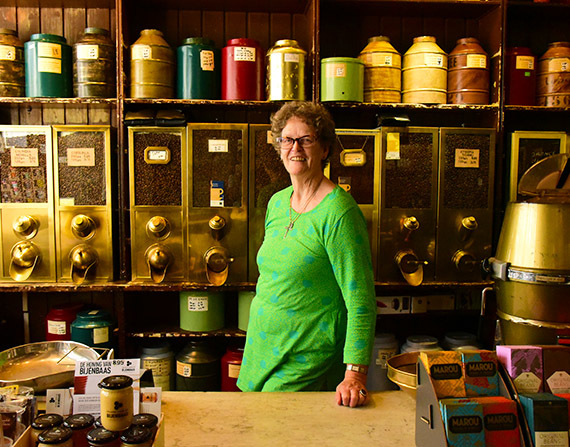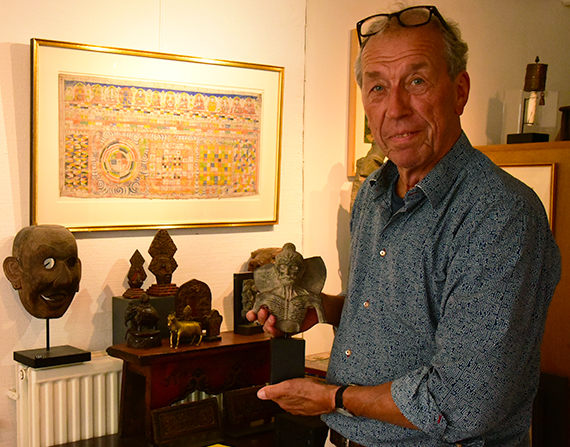My Last Drink with Brazilian bartender Neli Pereira
"I must help place Brazil on the world's cocktail industry map", says Brazilian bartender, Neli Pereira, whose mission is to preserve her home country's native ingredients and put them in the spotlight. Actually, this isn't a motivation we manage to see that often in Brazil, which is why Neli can be considered one of the few who is still enduring this challenging path.
The local ingredients she mentions - roots, plants, seeds - are exceptional trademarks of Brazil and they are as unique as their names: araçá, grumixama, cataia, carqueja, catuaba, jurubeba, butiá, arruda. Try to see Neli's skillful hands working with these ingredients: that's when magic happens at the Zebra, a bar-cum-gallery in São Paulo opened in 2012 by Neli and her husband, the contemporary artist, Renato Larini.
Neli is one of the most interesting, clever and exceptional bartenders I've ever had the pleasure to interview. I also consider it a privilege to drink a cocktail prepared by her: "Every mixologist is a bartender, but it doesn't work the other way around", she says. After our pleasant conversation, I was more than convinced that she represents and stands out in such a small group of mixologists in Brazil. Neli is not only a 'mixologist-bartender' but she is also an eloquent communicator, an opinion maker, a restless researcher devoted to leverage the audience towards Brazil’s neglected local ingredients.
I was warmly welcomed at Neli's bar just one day before lockdown hit us all. I was still living in Brazil (two weeks before my move to Amsterdam). She didn't blink twice to choose her own Bar Zebra as the place where she would have her Last Drink (this is not an obvious choice as she explained very poetically).
During a delightful interview, we spoke about how Brazil fascinates her and how her work is driven by her passion for her home country. In a very personal and authorial way, she researches native roots, herbs and plants. Neli also does what she calls "a mixology of ingredients" to refer to her creative process. Instead of preparing a drink based on spirits such as whiskey or vodka, she asks herself beforehand: "If I have a jucá (a native fruit from Amazonia) in my hands, what could be a good fit for it? Or, if I have a carqueja (native herb used for teas), a catuaba (native bush) or a jurubeba (healing plant), these are the ones who will 'talk' to me and will say what I should do!".
As Neli praises the Brazilian ingredients while she speaks, I couldn't help but notice that the Brazilian cocktail industry still needs to recognize Neli and give her the credit she deserves for such distinguished work (it's a paradox when I think about the Brazilian gastronomy industry and how it pays so much more attention to her auctorial research whereas the cocktail industry takes it for granted! Neli should be applauded for what she does).
We also remembered the old-fashioned Brazilian bars known as "botecos". These places' owners have such effortless expertise when it comes to infusing the Brazilian cachaça with local herbs: they've been doing this for ages, something similar to what Neli does at her own bar. Neli is actually inspired by these seniors who run the local "botecos" and, as she cleverly points out: "They are the real Brazil's ethylic heritage".
As a bartender, one could suppose that Neli drinks quite a bit. “But it's just the opposite”, she claims. At the end of our time together, she couldn't hide her sparkling eyes when she mentioned her upcoming book due to be launched soon during the Bienal do Livro (which unfortunately had to be postponed because of Corona restrictions).
Here's the interview that I made with this incredible woman:
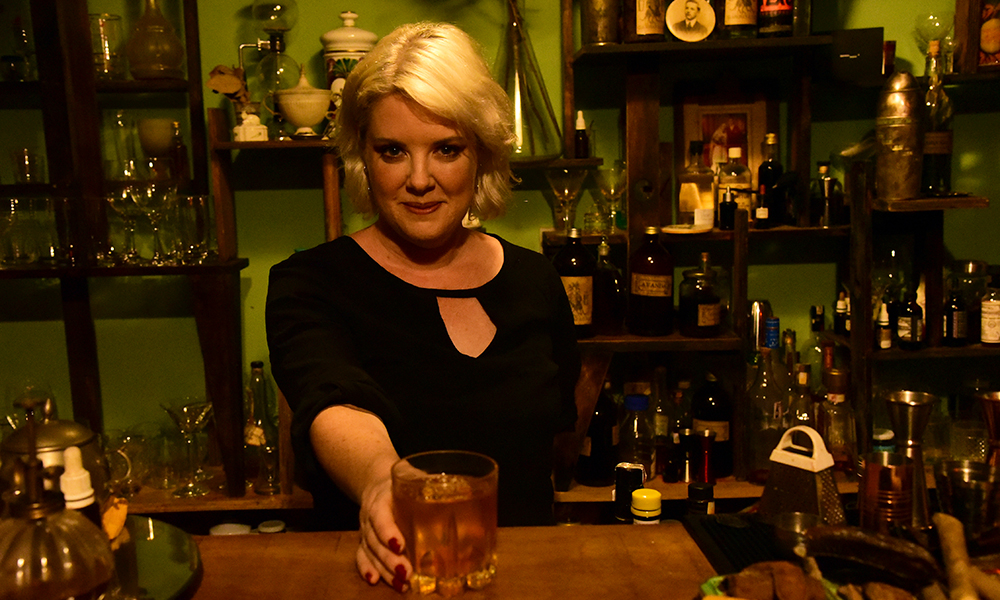
*Before speaking about your Last Drink: should I call you a bartender or a mixologist?
You can call me a bartender. Every mixologist is a bartender, but it doesn't work the other way around. The same goes with cuisine: not every cook is a chef, but every chef needs to be a cook. There's no such phrase as "I have very good taste so I will make cocktails". Deep inside us we create cocktails for people, not for ourselves: I am not preparing cocktails to please myself, but rather others. I very much enjoy bitter drinks, but I am not making bitter drinks just because this is my personal taste. I always think about who is going to drink my cocktail albeit using my own repertoire. Back to your question, though: I am firstly a bartender but also a journalist - even better, a communicator -, I make drinks and produce digital content.
*Speaking about personal taste: what is yours when it comes to drinks?
I work with the mixology of ingredients which means I don't question myself whether I will make a cocktail with gin or whiskey, for example. Rather I question myself: what could be a good fit for a jucá? (referring to a Brazilian native fruit from Amazonia). Or even if I have a carqueja (native herb commonly used to prepare tea), or catuaba (native bush), jurubeba (healing plant), or arapuama (herb), cumaru (tonka)... they are the ones who tell me what to do.
For example, if I have a catuaba - which is tannic and spicy - what should I mix this with? Gin? No! But catuaba is going to love whiskey and vodka because they enrich its tannin. I work with non-obvious Brazilian ingredients as well as with a mixology concept made by bitter and native roots, herbs and plants that ended up being neglected, forgotten by our society.
In order to work with roots and plants, it's mandatory to be a good mixologist. Although we see a huge boom of cocktail bars in Brazil, this market still needs to grow up until it becomes mature and professional. That's why I always point out the importance of having a repertoire: this is such a powerful tool in our industry.
For example, if you don't know gastronomy nor have the curiosity to try new dishes and flavors, you will never become a good mixologist. When we prepare a cocktail, we must make use of the background of flavors and aromas otherwise we'll be just a run of the mill cocktail reproducer. This all helps to create an authentic and original drink.
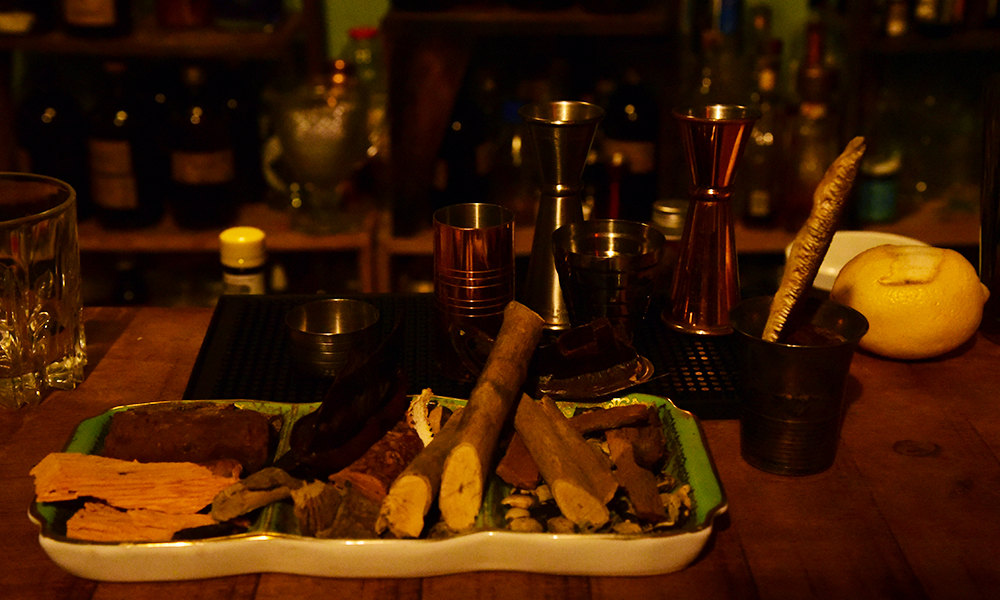
*Speaking about your research and repertoire: have they always been there due to a special reason or have they come along when you've started to work in this industry?
I guess that Brazil has always been part of my work. My first job was at a Radio Station which broadcasts Brazilian Popular Music. From aged 17 to 24, I used to do live interviews with many distinguished Brazilian musicians, such as Caetano Veloso, Paulinho da Viola, Ariano Suassuna and Dona Ivone Lara. All the important artists had been on the Radio and I had to study my country a lot before being able to do a face-to-face interview. I did a Master’s in Visual Identity in London after I had done a Master's in Russian Semiotics (Culture Semiotics in Brazil). When I was studying and working in journalism, my research line was always towards increasing my knowledge about Brazil. Then I went to hard news as a BBC London reporter, but even during that time I was always trying to showcase and translate Brazil for a foreign audience.
When I came back to my country, my husband and I decided to open Zebra and make it a hybrid place where people could enjoy art in a different way. Then we started to work with beverages. By that time, I had already taken wine sommelier classes. I have always been passionate about beverages in general and I felt propelled to study that. At Zebra we started with wine, beer and suddenly I was preparing cocktails. In 2013 I realized a trend outside Brazil called "apothecary mixology", which was dedicated to natural ingredients, healing/medical recipes and drinks for well-being with low alcoholic dosages. All this caught my attention.
Obviously, it wouldn't make any sense to import those ingredients when they were already here. So, my husband took me to those "botecos" (popular bars) in São Paulo where I saw lots of roots and plants being infused: carqueja, catuaba, jurubeba, butiá, arruda. These are trademark Brazilian and those "botecos" have been doing this forever. That was a turning point in my career, I mean, to come across these ingredients which had led me to understand about infusion, brew and amaros. I'm driven by this urge to help place Brazil in the cocktail industry scene.
*When I asked where you would have your Last Drink, you told me straight-away - still in a very poetic way - that you would choose Zebra. What is your relationship with this place?
I had no doubts that my Last Drink should be here. We live on the upper floor so we are fortunate to be able to come and go as much as we want to during quarantine. Although the bar's doors are closed, we still have access to it during isolation (naturally keeping all precautions and hygienic standards). Honestly, I don't think I could handle being away from this place that I am so attached to.
The counter and the shelves were carefully made by our own hands; the tableware and paintings belong to my grandmothers. This is more than a counter for me, it is an altar! I treat this bar with the utmost respect. There's no place in the world where I have made more friends and where I have reinvented myself the most. Behind Zebra's counter is where I have most been able to re-create myself. I love the bar counters of my friends but if I would have to choose one, it definitely would be here.
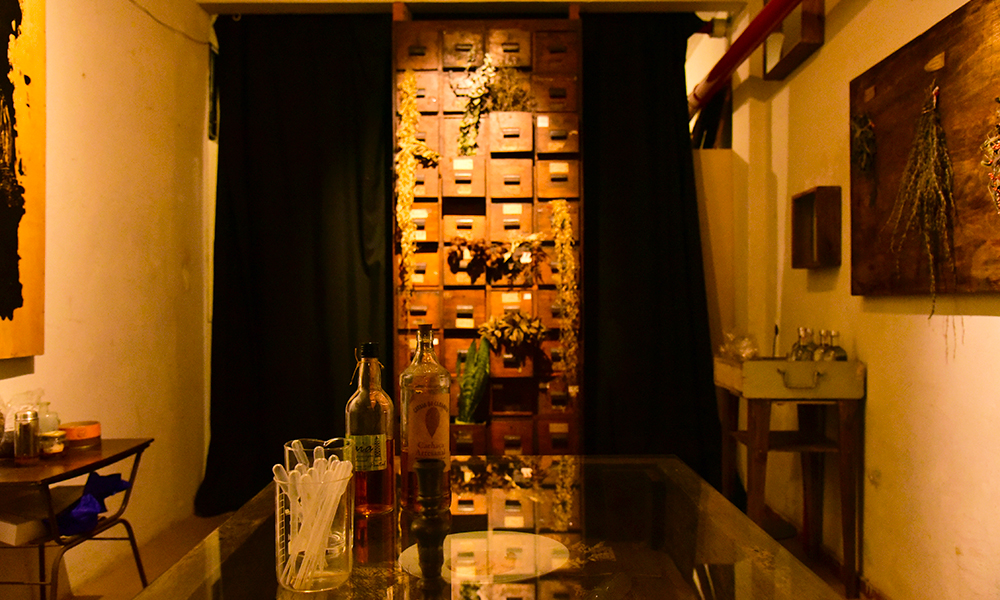
*And what would your Last Drink be?
I got myself overthinking about this. Would it be a Brazilian-flavored one? Or one of my favorite classics such as Manhattan? Then I made up my mind: I am choosing the drink I have been drinking the most which has also been pleasing me the most.
I could choose the Brazilian cachaça just because it would make total sense to my origins, but the truth is I would definitely drink a Bourbon as this is my favorite distilled beverage.
Also, being an amaro fan as I am, I would add a bit of amaro to my Bourbon and a bit of sweetness with a herbal liquor. This is a cocktail I make at the Zebra called "Classic is Classic". It's a full bodied, flawless cocktail, chocolate-flavored, strong and delicious. The amaro I am preparing for us tonight is made with Brazilian herbs, roots and jucá (native fruit). Jucá reminds us of a tamarind taste, perfect to make amaros.
*Do you usually drink every day?
No. I always drink carefully. Since 2019, I spend 30 alcohol free days, or even 40 days, every new year. I started doing that when I realized that I couldn't remember the last day I spent not drinking at all. It doesn't count when I have to taste new cocktails that I am experimenting for the bar's menu, which is always just a sip.
Also, I really care about the longevity of my clients: I want people to drink carefully, consciously and well (and I can't stand drunk clients!). As beverage industry professionals, we carry a huge responsibility, and we should respect the ingredients we work with. Sadly, we can still see here and there some cocktail culture related to non-respectful behavior. We work and live in an industry of social entertainment but still, we need to treat alcohol with caution.
*Are you inspired by someone?
My main reference has always been the owners of the Brazilian "botecos". They have been there, infusing cachaça with Brazilian herbs since the year dot much before we had started to use bitter. These seniors should become Brazil's ethylic heritage.
As for the Brazilian cocktail industry, I find it very interesting what bartender Jean Ponce has been doing with Brazilian ingredients as well; Felipe Jannuzzi has also been researching cachaça amazingly. Zulu is also a reference for me especially when it comes to bitters. I also want to mention Spencer, one of the most complete bartenders of Brazil, expert in Classics and such a dear, special and generous human being.
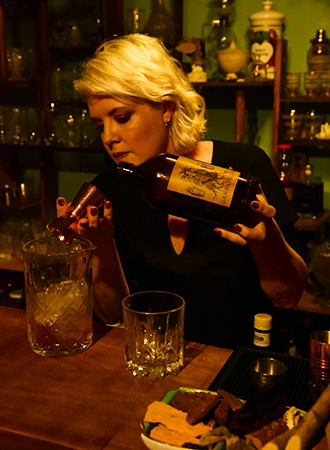
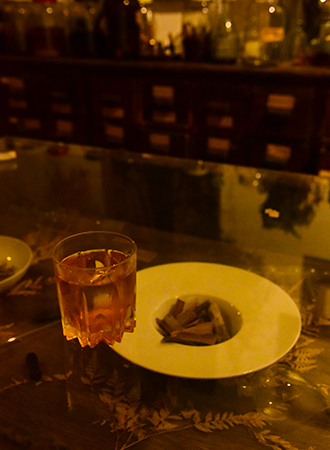
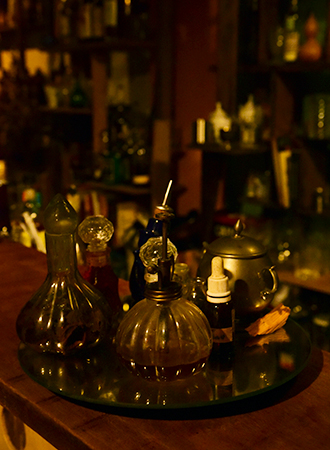
*Do you receive any sort of support to continue your research?
I've never had any kind of support to do my research work. What I try to do is to present my research for certain brands that eventually can make good use of this subject and then support me, such as Absolut Vodka did last year. But I do not receive any income nor support for my work trips, for example.
What I would love to have is a wider stage to talk about my work. That can also mean some financial support to produce more digital content. During quarantine, I have been doing daily Instagram Lives promoting the ingredients I still have. My husband, Renato, helps me immensely. I would love to take these Lives to another level as well as to have more money to travel throughout the whole country.
What I also miss and hope for is that my work can be pointed out by the industry as a reference when it comes to cocktail projects. My work should be more credited by the market. I give speeches, workshops, classes; I am invited to participate in several gastronomy events, I did Tedex Sao Paulo and I can't help but notice that my ingredients’ research is so much more cherished by gastronomy rather than by the cocktail industry.
If my research work gains recognition, the market could eventually benefit from it and reach a broader audience as well.
*Is the cocktail industry united?
It's a work in progress, I would say. It’s normal to have clusters but what it lacks is to give credit where credit’s due to one another. Let's say that someone likes my research: this person can call me as I am very much open to exchange and share information. There's no need to copy my work. Can you imagine our industry working altogether, how much stronger that would be? I only miss this ethical friendship behavior from some fellows in our industry.
*Have you been planning your future, or are you more of a "go with the flow" person?
I am pretty much "go with the flow" and I am terrible in making plans. My friends keep saying to me that I never stay in my comfort zone no matter what. I love the idea of doing new stuff, to reinvent myself, to embrace new adventures. I'm fearless. To make it easier, my better-half, Renato, is always there to support me and value my career.
Since I was a little girl, I wanted to become a journalist and I always pushed myself harder. I possess a curiosity to know that I am capable to do it. I want my research to reach the greatest number of people as possible, encouraging them to buy jurubeba instead of grapefruit. If making mistakes are on the table, I don't mind as well. I would rather make mistakes instead of not doing something at all.
*I heard that you have an upcoming new book...
Oh boy! It's a Bible already! The book will have around 100 pages and it's not about cocktails, but Brazil and my research on Brazilian herbs and roots. It also tells the history of alcohol and herbs during the lifetime of humanity. It will present 10 to 12 recipes out of ingredients I've chosen myself, such as boldo, carqueja, jurubeba, catuaba and a few others that have become my dearest ones. It is not a recipe book but more a book about Brazilian flavors, with a little bit of historical knowledge thrown in. I plan to launch as soon as the pandemic allows me.
*Please name 3 bars in the world you consider very special.
Certainly the "botecos" which work with infusion and Brazilian roots are the ones which fascinate me the most.
But there are a couple of ones I love spending time at especially because of their environment: A Dama e os Vagabundos in São Paulo, where I always feel at home. The three young owners are such special people I like to be around with.
I also love Jiquitaia in São Paulo whose counter is "a must" and it is one of the few bars in Brazil where you can have really good food yet in a relaxing atmosphere.
And Midnight Apothecary based in London inside a former museum that belongs to Lottie Muir, a lady in her 60s who is always present and takes good care of the place's garden. There she grows seeds, plants and roots to prepare the cocktails. It's a very unpretentious spot that cares so much about ingredients.



